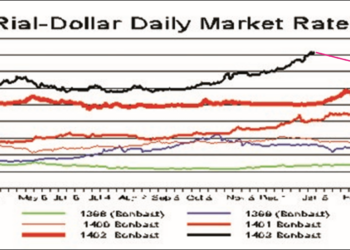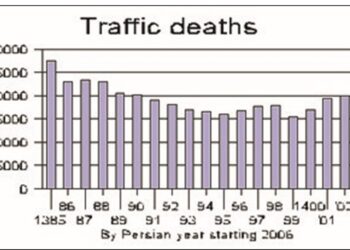bringing the total number of suspects in the case to 49. Further investigation has reduced the scale of the fraud by 40 percent from $2.6 billion to a mere $1.6 billion.
“In the past three days, 14 more people, including bank managers and others linked to the case, have been temporarily detained,” Prosecutor General Gholam-Hossain Mohseni-Ejai announced.
Ejai said a number of people implicated in the fraud case but not detained have been banned from leaving the country. He called on the former Bank Melli head, who flew to Canada early in the case, to return and tell what he knows.
Mahmud-Reza Khavari resigned as chairman of the state-run Melli Bank last month and immediately flew to Toronto where he owns a mansion. He has still not been seen in public in Canada.
“Should the former Melli Bank chief fail to return to the country, the Judiciary will issue a warrant for his arrest,” the prosecutor general said. Iran and Canada, however, do not have an extradition treaty.
The Toronto Star reported that property records indicate a house worth $2.95 million was purchased under Khavari’s name in 2007. Khavari’s wife reportedly lives in the house, but it is not clear how often he himself has been there.
A man approached after he parked his car in the garage of the house had “no comment” in response to questions.
Ejai was appointed last month to head the investigation into the wide-ranging financial fraud case.
The initial figures for the embezzlement have now been revised downward from 28 trillion rials ($2.6 billion) to 17 billion rials, or $1.6 billion, of which a quarter has been recovered already.
“We are in the process of getting back the remaining 75 percent, which is around 13 trillion rials ($1.2 billion),” said Economy Minister Shamseddin Hossaini.
Meanwhile, Ejai reported that the government had seized the assets of the Amir-Mansur Arya Investment Company, owned by financier and entrepreneur Amir-Mansur Khosravi, who has been implicated in the scandal and is in jail.
He had obtained authorization to operate Arya Bank. It was not yet operational, however, and its authorization has now been revoked.
It is widely believed that the financial scandal stemmed in large part from a lack of oversight in the country’s banking sector. Proposed reforms are aimed at improving the audit and oversight powers of the governance structures of the banks. It is an open question whether the officers of some banks were knowing participants in the fraud or victims of the fraudsters. But investigators have said they have found that some banks lent more funds than regulations allowed.
Central Bank Governor Mahmud Bahmani said the government wanted to provide “greater empowerment of the banks’ disciplinary boards in order to take stricter action against violations in the country’s banking sector,” according to a report from the state radio.
He said the governing institutions of Iran’s major banks will be overhauled to allow for greater checks and balances.
But as of this point, he has announced only a single regulatory change.
“Earlier, the same person used to hold the two positions of [bank] executive director and head of the board of directors. We have now separated them. That means that one person will be the executive director and another will be the head of the board of directors,” he was quoted as saying by state radio.














